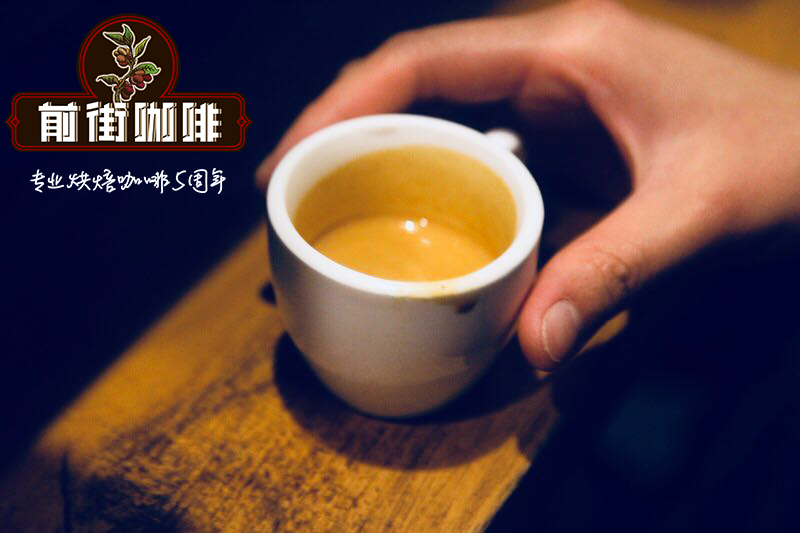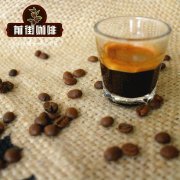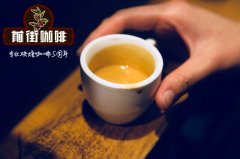Introduction to the treatment of Costa Rican Fine Coffee with Black Honey in La Lajas Manor, Costa Rica

Professional coffee knowledge exchange more coffee bean information please follow the coffee workshop (Wechat official account cafe_style)
Country: Costa Rica
Product name: Ras Lajas Manor Black Honey treatment
Producing area: central valley
Grade: SHB
Treatment method: black honey treatment
Variety: Kaddura & Kaduai
Flavor description: dried pineapple, fruit wine, black sugar, long-lasting and full-bodied, Body thick
The exquisite sun and honey treatments that are quite popular in Costa Rica
La Lajas Manor is one of the earliest manors to carry out systematic research and treatment.
It has been a favorite coffee farm for global buyers for many years.
La Lajas Manor is currently owned by Francesca, the third-generation owner of the manor.
Co-operated with his wife Oscar
The manor is located in the central valley not far from the capital.
Quite close to Poas Volcano Volcano
The altitude is between meters, and the annual output is about 55200 kilograms.
Many years ago, Francesca, the owner of the manor, had been hoping to improve the flavor of the coffee in the manor.
At that time, the vast majority of coffee farmers in Costa Rica
The traditional washing method is generally adopted.
To supply the needs of the American and European markets, so the landowners began to study
And improve a lot of equipment in the manor.
In order to better meet the needs of sun and honey-treated coffee.
In the harvest stage, the landlord uses a sweetness detector.
Screening the red fruits of coffee up to the standard
At the same time, set up its own washing treatment station for coffee treatment.
Finally, it was placed on the African scaffolding for further exposure.
In the coffee at the Laslajas manor.
The landowner treats honey and sun-dried coffee
It is divided into many different items by the expression of flavor.
In terms of honey treatment,
Costa Rican farmers mostly rely on washing treatment stations
Peeling machine to control the amount of residual pulp
But Laslajas Manor decided to take a different approach.
That is, to retain the highest proportion of 100% of the flesh.
But control the time of exposure and turning on the African scaffolding.
To show different coffee flavors.
In the honey treatment, the manor owner divides the coffee into yellow honey, red honey and black honey.
Yellow honey treatment:
After removing the pericarp
The uniform was placed on the African scaffolding in the early morning and was exposed to the sun and turned immediately.
Red honey treatment:
After removing the pericarp
The unified scaffolding was placed on the African scaffolding in the early morning and was not turned until noon.
Black honey treatment:
After removing the pericarp
The unified scaffolding was placed on the African scaffolding in the morning and was not turned until after the afternoon.
As for the rule of sun treatment, by means of
Plastic cloth shading way to deal with a lot of more detailed flavor performance black pearl:
The red fruit of the coffee harvested in the early morning
Place it on an African scaffolding and turn it regularly and expose it to 11.5% moisture content.
The whole process will take about two weeks.
Black Soul: the harvested coffee red fruit is placed on the African scaffolding in the early morning.
Turn regularly every day to expose yourself to the sun.
Shade with plastic cloth until the moisture content is 11.5%. The whole process takes about three weeks.
At the same time, the manor owner has strict requirements on the fertilizer materials of the manor.
All processes need to be planted and fertilized according to organic standards.
Organic compost is used throughout the manor, and organic standards are extended to include soil,
Shade tree and washing plant procedures.
After years of hard work, the Ras Lajas Manor
Has passed the Japanese JAS, American USDA and NOP organic certification.
Important Notice :
前街咖啡 FrontStreet Coffee has moved to new addredd:
FrontStreet Coffee Address: 315,Donghua East Road,GuangZhou
Tel:020 38364473
- Prev

The history and planting environment of Eincht Manor? What are the characteristics of Incht Manor in Guatemala?
Professional coffee knowledge exchange more coffee bean information please follow the coffee workshop (Wechat official account cafe_style) Eincht manor history and planting environment? What are the characteristics of Incht Manor in Guatemala? Eincht Manor has always been the pioneer of fine coffee in Central America. About 50 years ago, it was the first to focus on single variety and vertical integration to produce high-quality coffee.
- Next

Costa Rican Father Blessing COE Series N2 Solar Costa Rica Fine Coffee introduction
Professional coffee knowledge exchange more coffee bean information please follow the coffee workshop (Wechat official account cafe_style) Costa Rica Father bless COE series N2 tanning country: Costa Rica production area: Tarazhu altitude: 1650 treatment: sun treatment grade: SHB variety: Villa Lobos flavor description: dried peach, flower, frankincense, sweet and bright
Related
- Detailed explanation of Jadeite planting Land in Panamanian Jadeite Manor introduction to the grading system of Jadeite competitive bidding, Red bid, Green bid and Rose Summer
- Story of Coffee planting in Brenka region of Costa Rica Stonehenge Manor anaerobic heavy honey treatment of flavor mouth
- What's on the barrel of Blue Mountain Coffee beans?
- Can American coffee also pull flowers? How to use hot American style to pull out a good-looking pattern?
- Can you make a cold extract with coffee beans? What is the right proportion for cold-extracted coffee formula?
- Indonesian PWN Gold Mandrine Coffee Origin Features Flavor How to Chong? Mandolin coffee is American.
- A brief introduction to the flavor characteristics of Brazilian yellow bourbon coffee beans
- What is the effect of different water quality on the flavor of cold-extracted coffee? What kind of water is best for brewing coffee?
- Why do you think of Rose Summer whenever you mention Panamanian coffee?
- Introduction to the characteristics of authentic blue mountain coffee bean producing areas? What is the CIB Coffee Authority in Jamaica?

